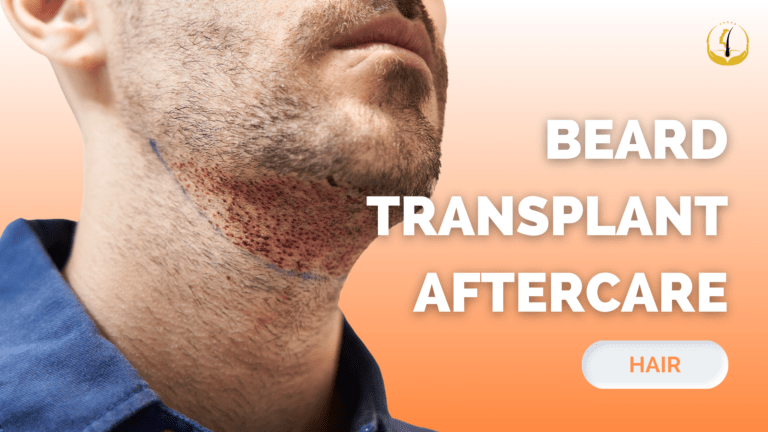Beard transplants have emerged as a transformative solution for men seeking a more defined and fuller beard. While the surgical procedure lays the foundation for a new look, the journey continues with crucial aftercare. This article delves into the intricacies of beard transplant aftercare, offering insights on immediate post-transplant care and long-term strategies to nurture your newfound appearance.
Immediate Post-Transplant Care
Q: Why is it important to avoid touching the transplanted area immediately after the procedure?
A: Touching or scratching the area can disrupt the healing process and potentially dislodge grafts, jeopardizing the success of the transplant.
Q: What cleansing routine is recommended for the transplanted area?
A: Gently clean the area using a mild, fragrance-free cleanser as per your surgeon’s instructions to prevent irritation and support healing.
Q: Are there medications prescribed for immediate post-transplant care?
A: Surgeons may prescribe antibiotics to prevent infections and anti-inflammatory drugs to minimize swelling during the initial healing phase.
Q: Why is rest emphasized in the immediate post-transplant period?
A: Rest is crucial for proper healing. Strenuous activities or exercises that increase blood flow to the transplant area should be avoided.
Q: How can sunlight be harmful to the transplanted area, and what precautions are recommended?
A: Direct sunlight can be harmful. Protect the area with a wide-brimmed hat or sunscreen with a high SPF when going outside.
Long-Term Aftercare
Q: Why do transplanted hairs initially fall out, and when can one expect new growth?
A: Initial hair loss is normal. New growth will occur in the following months, emphasizing the importance of patience in the process.
Q: How does a healthy lifestyle contribute to the long-term success of a beard transplant?
A: A balanced diet rich in vitamins and minerals, especially Biotin, Vitamin E, and Vitamin D, promotes overall hair health.
Q: What is the significance of a gentle beard care routine once new hair starts growing?
A: A mild shampoo and conditioner maintain cleanliness and moisture. It’s essential to be gentle while shaving to prevent irritation.
Q: Why are regular follow-up appointments with the surgeon crucial in long-term aftercare?
A: Surgeons monitor progress and provide personalized guidance based on the individual’s healing process during follow-up appointments.
Q: How do lifestyle factors like smoking and alcohol consumption impact beard transplant aftercare?
A: Smoking impedes blood flow, hindering hair growth. Moderation in alcohol intake is advised to prevent dehydration and support hair health.
In conclusion, beard transplant aftercare is a holistic process vital for a successful and enduring transformation. Following these guidelines, maintaining a healthy lifestyle, and prioritizing regular check-ins with your surgeon contribute to the longevity and overall success of your beard transplant. As you patiently nurture your new beard, you’re not just enhancing your physical appearance but also boosting your self-confidence and well-being.
Click the link to learn more about Beard Transplants: “What to Expect During Beard Transplant Procedure?”
